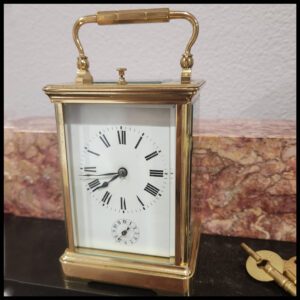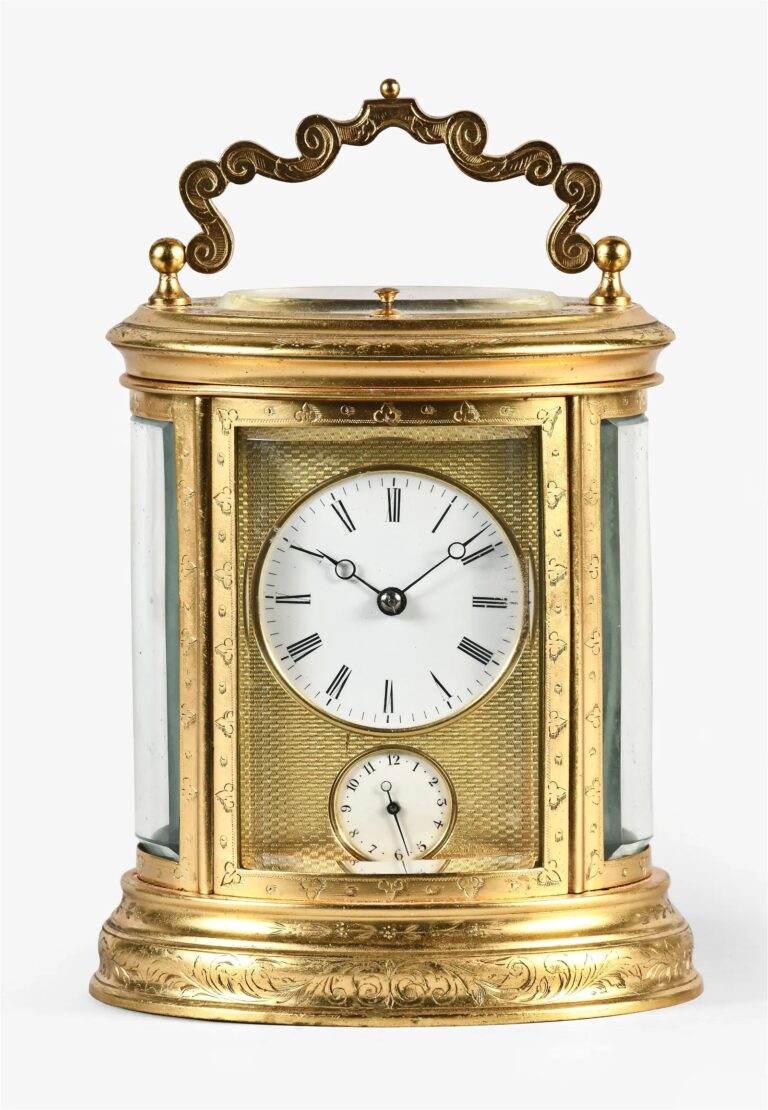The Lasting Appeal of a French Carriage Clock
Among the most admired pieces in horological history, the French carriage clock stands as a shining symbol of craftsmanship, precision, and elegance. Collectors and historians alike continue to be drawn to its charm, and for good reason. Whether showcased on a mantel, nestled in a glass case, or ticking quietly in a collector’s display, the French carriage clock carries a legacy of artistry that transcends centuries. Originally designed for portability, these exquisite timepieces soon became a luxury status symbol — admired not just for their practicality but for their beauty and enduring value.
A Brief History of the French Carriage Clock
The story of the French carriage clock begins in the early 19th century. These clocks were first created for wealthy travelers who desired both functionality and elegance while on the move. Compact and beautifully encased, they were often fitted with a handle for easy transport. Crafted by renowned French horologists such as Breguet and Le Roy, these clocks represented the pinnacle of fine European clockmaking. What began as a tool for travelers soon evolved into a collectible masterpiece, beloved for its engineering precision and refined aesthetic.
As industrialization spread across Europe, many designs emerged, but none could rival the attention to detail and artistic flair found in a French carriage clock. From delicately enameled faces to intricately gilded brass cases, each piece told a story of its own. Today, collectors search the globe for these creations, seeing them not just as timekeepers, but as miniature works of art.
The Allure of the Vintage Carriage Clock

Every vintage carriage clock evokes a sense of nostalgia. Their soft chime and precise ticking remind collectors of a time when craftsmanship mattered most. Each detail — from beveled glass panels to the delicate escapement mechanism — reflects the artisan’s devotion to quality. These clocks were often presented as gifts among the upper classes, and owning one today is akin to holding a piece of history.
A vintage carriage clock is especially prized because many were handmade, often taking months to complete. No two pieces were exactly alike, giving each clock a distinctive identity. Collectors value not only their design but also their mechanical ingenuity — a testament to an era when horology was both science and art.
Why Collectors Seek Rare Antique Clocks
For horological enthusiasts, the pursuit of rare antique clocks is both a passion and a challenge. Many of the most desirable pieces are over a century old and have survived wars, travel, and the passage of time. The French carriage clock, in particular, has become one of the most highly sought-after among rare antique clocks because of its innovative engineering and timeless elegance.
Each clock serves as a historical artifact, revealing clues about the materials, technology, and tastes of its era. Some feature elaborate engraving or gilding, while others boast precision movements that rival even modern timepieces. For collectors, discovering one in pristine condition — especially with its original key or casing — can be a thrilling find. Owning such a clock is not merely about possession; it’s about preserving an important piece of human ingenuity.
The Growing Demand for Rare Clocks
In recent years, rare clocks have gained renewed attention from both collectors and interior designers. As more people seek unique statement pieces, the demand for these mechanical masterpieces continues to rise. A rare clock does more than tell time — it tells a story. And few stories are as captivating as that of the French carriage clock.
With their shimmering brass frames and hand-painted dials, these clocks fit seamlessly into both classic and contemporary interiors. Their versatility, combined with their historic charm, makes them appealing to a new generation of collectors. Whether displayed in a modern loft or a traditional study, these clocks add warmth, depth, and sophistication to any room.
The Timeless Treasure
In the world of horology, few creations inspire as much admiration as the French carriage clock. Its perfect balance of beauty and precision, its fascinating history, and its association with refinement have all contributed to its enduring status. For those who appreciate rare clocks or delight in discovering rare antique clocks, the French carriage clock remains a crown jewel — a living connection to the artistry and innovation of centuries past.
A vintage carriage clock doesn’t just measure hours; it captures them. It reminds us that time, like craftsmanship, is meant to be cherished — one graceful tick at a time.


